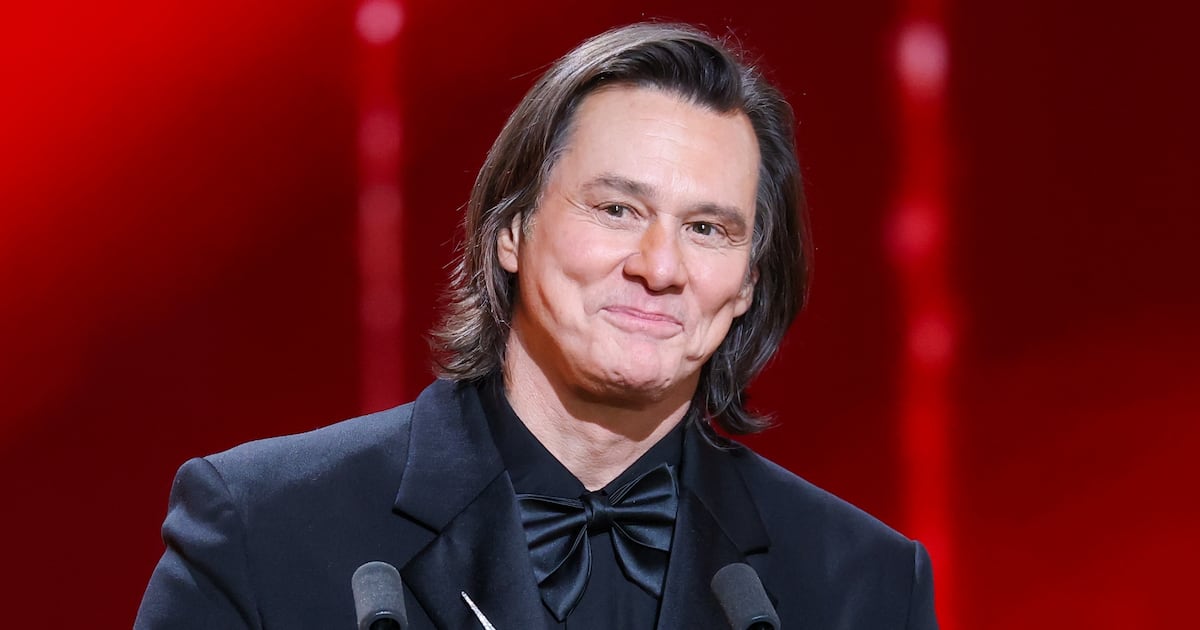The television industry has changed an astronomical amount since 2005, but one of the few constants has been the unstoppable force that is Grey’s Anatomy. For 20 seasons, the show has been one of TV’s biggest hits and, for just as long, diminished for its outstanding achievements.
It’s easy to forget that Grey’s Anatomy began its run with Emmy nominations aplenty and has served as a titan of the television industry. Long before the show became easy fodder for Redditors to scoff at, it revitalized the primetime soap opera, providing a last gasp for watercooler network TV. It’s almost too good at the craft, making its two-decade run seem effortless. But it’s actually incredible.
Grey’s Anatomy is both a primetime soap opera and a procedural, two genres that rarely receive esteem and are often criticized for predictable redundancy. But it’s a mistake to classify Grey’s in the same space as Chicago Med or NCIS. There’s nothing wrong with a good procedural, but the truth is, when the lights go off for the Chicago franchise that will be the end. Grey’s Anatomy’s legacy will long survive its run, made immensely clear by the fact that, 20 years in, the show’s peak still runs circles around its peers.
So, why then, is the dynamic series often reduced to a guilty pleasure?

Kate Walsh, Chandra Wilson, Camilla Luddington, and Stefania Spampinato
Eric McCandless/ABC via Getty ImagesGuilty pleasure implies there’s some reason to be ashamed, something requiring you to justify your enjoyment. It’s the implication that something isn’t unironically good, but a little treat to enjoy between serious endeavors. Sure, Grey’s Anatomy is indulgent and messy, but that doesn’t inherently make it lowbrow. The show is iconic in many ways, and has been so influential on the TV landscape.
It may seem unremarkable now, but to open your pilot episode on the naked butt of Derek Shepherd, who our protagonist, Meredith Grey, had just slept with, is a brazen move defiant of then-network TV standards. It’s one that was still provocative when NBC’s This Is Us semi-replicated it in its own pilot, 11 years later. In Grey’s Anatomy’s eighth season in 2011, Cristina Yang had an abortion simply because she did not want a baby, a daring move for a network drama, one that arguably helped open the door for shows like Scandal, Crazy Ex-Girlfriend, and A Million Little Things, which had their own groundbreaking plots, to follow.
And, before The Summer I Turned Pretty used popular songs for its major emotional beats, Grey’s Anatomy was there to make sure that you’ll never hear “Breathe (2 AM)” or “How to Save a Life” the same way again.
It’s not just important TV, it’s simply good. Authenticity bleeds through Grey’s, creating an immense, beautiful world of heartache, laughter and relatability. By the time Grey’s Anatomy addressed a post-Roe v. Wade world in its 19th season last year, it felt like a natural evolution of a show that has rarely shied away from the reality of the twisted world it’s based in, and one that was determined not to lose its edge, even if it has lost its luster.
Early on, Grey’s made upping the ante its brand, expertly mixing nuanced emotions with explosive stunts, teetering on a tightrope without ever falling. Sure, when you consider that one hospital encountered a bomb, a shooting, and a plane crash, you might think it’s incredulous that anyone ever takes the show seriously. But it’s in the follow-through that Grey’s shows its cards.

Caterina Scorsone, Ellen Pompeo, Terrika Hinton, and Chandra Wilson
Mitch Haaseth/Disney General Entertainment Content via Getty ImagesGrey’s Anatomy wasn’t the first primetime soap to elevate the stakes with a dramatic spectacle, after all. Dallas’ “Who Shot JR?” arc may be one of the most infamous stunts on TV, while the bomb heard around the world on Melrose Place is an expert season-ending cliffhanger. And a grocery store shooting was Desperate Housewives’ best-ever episode, one that scored Felicity Huffman an Emmy nom and led to annual “disaster” episodes.
Grey’s has never been afraid to upend its status quo, and its major swings rarely miss. The show spent much of its seventh season exploring the ramifications of the hospital shooting, while the plane crash radically shifted the foundation of the show from Season 9 on, allowing characters to grieve and explore trauma in nuanced ways often ignored within the genre.
Even the three-episode arc that watched Meredith drown, visit the afterlife, and come back to life in Season 3 is more profound than a simple February sweeps stunt. Exploring the suicidal tendencies that simmered at Meredith’s core in such a grandiose way encapsulated her arc without minimizing the complexities of a serious issue. She’s perhaps one of TV’s most fascinating characters, rarely given a moment to chew scenery. Subtlety is the key to Meredith, and that’s what makes her role as the lead so impactful. While complex leads are a dime a dozen on TV today, it was especially rare to see a female star exude such rigidity then, and in many ways, now.
The show’s biggest jump-the-shark moment may have also been its most impressive, too. Killing off Derek in the 11th season, Grey’s Anatomy rebuked the happily ever after fans of the early seasons may have expected. Certainly a product of the show’s unprecedented run, losing long-standing characters became inevitable. But to kill off Derek was more than a stunt. It’s a decision that reverberated through the entire show, redefining every moment that led to his death, and allowing the show to enter the unknown.

Patrick Dempsey and Ellen Pompeo
ABCI have to give credit to Desperate Housewives—which killed off Susan Mayer’s main love interest Mike Delfino just episodes from the series finale—for pioneering this bold move, but Grey’s got to do what Desperate Housewives didn’t have time to: explore what happens next.
In an era of short-lived shows, Grey’s Anatomy is something special. And its 12th season proves that. In the aftermath of Derek’s devastating death, Meredith puts her life back together through a season-long journey that quite easily serves as her most compelling arc since the show’s early days. After years of stagnation, the show breathed new life into itself—and its protagonist.
Few series get to experience a second wind at all, yet alone in the 12th season. There’s one particular episode that stands out: Guess Who’s Coming to Dinner (Season 12, Episode 5), the show’s 250th episode. As Meredith comes face-to-face with the doctor who operated on a dying Derek, her dormant grief explodes in agonizing anger, creating an uncomfortable and impactful episode. It’s a stunning hour of television that takes place almost entirely in the confines of a dinner party, and one that could’ve entered Emmy conversations if the awards hadn’t begun dismissing the series seasons before.
Few shows have one good season, let alone 12. Sure, some could argue that the show overstayed its welcome, coasting on its familiar facade in some recent seasons, but that doesn’t change the simple truth at the core. Many of those who dismiss Grey’s Anatomy would have done so even if the show ended in its prime. After all, just look at its ABC peers Lost and Desperate Housewives, both of which premiered the same iconic TV season, the former a pivotal event series while the latter repopularized the primetime soap opera.
Despite the fact both shows ended near each other with six and eight seasons, respectively, Lost has firmly held its role atop the TV totem pole, while Desperate Housewives has largely been lost to history. Desperate Housewives was the highest rated show on TV in its first two seasons, and ended its run still a staple for the network, but is rarely discussed with the same reverence. And I don’t want to hear the rebuttal that Desperate Housewives fell off in quality, as that would imply Lost’s best days weren’t far behind it too, by the end. If Grey’s Anatomy had ended during this era, would it also have just faded away from cultural memory?
Grey’s Anatomy is a show created by a woman, for women, damning it to life as a guilty pleasure despite its merit. No, this isn’t my Barbie monologue moment, but let’s ask ourselves: What female-skewing show is universally agreed upon as a titan of the genre?

Caterina Scorsone, Ellen Pompeo, Terrika Hinton, and Chandra Wilson
Mitch Haaseth/Disney General Entertainment Content via Getty ImagesThis Is Us is dismissed as Mom TV that exists just to make you cry. Sex and the City is treated as though the shoddy vapidity of And Just Like That defines the entire series. Perhaps the closest we’ve gotten to respect for the genre and its audience is Big Little Lies. But it would genuinely be scary if even an HBO limited series starring some of Hollywood’s most esteemed actresses couldn’t garner respect. You shouldn’t need such four-quadrant appeal to stand out when even ABC’s risk-averse police procedural The Rookie gets more praise on r/Television than peak Grey’s Anatomy.
It’s not about competing with the Better Call Sauls of the world, but being accepted in conversation as objectively good, without qualifiers. Grey’s Anatomy is not a guilty pleasure, nor has it ever been. It should be no surprise that a multi-Emmy award winning series created by TV great Shonda Rhimes with standout actors like Sandra Oh is nothing short of a masterpiece.
It’s important to respect the show’s all-powerful legacy, even if you dislike Grey’s Anatomy or find it outside your personal interests. Without it, the television industry would no doubt be in worse straits. So if you’re a fan of the soapy drama, don’t be a wallflower about it. You are guilty of nothing except good taste—and persistence. Four hundred episodes is an impressive commitment.






